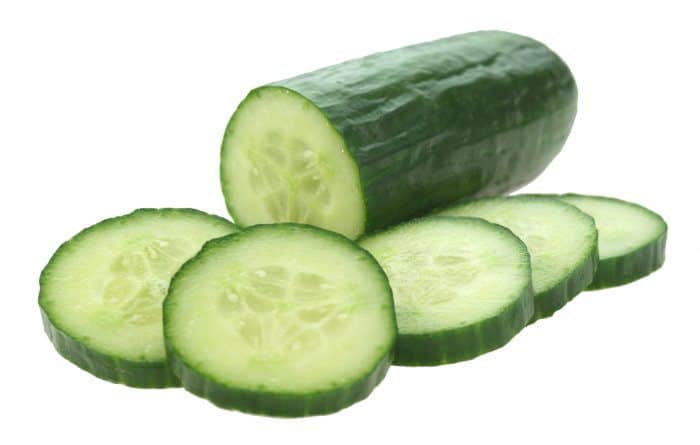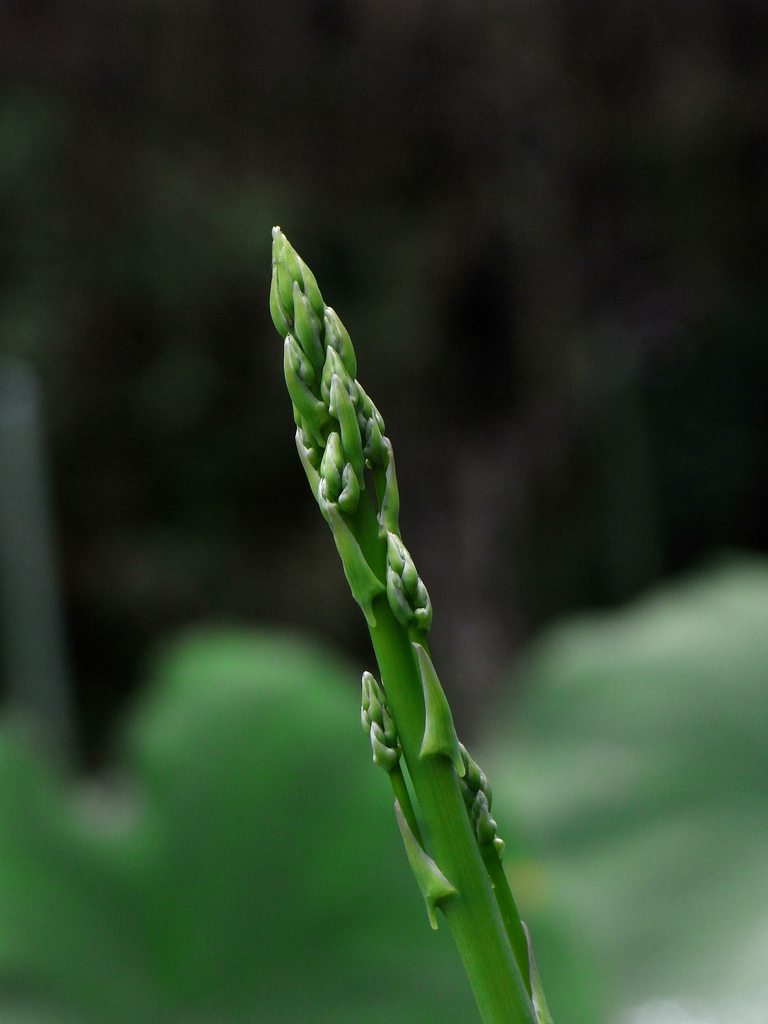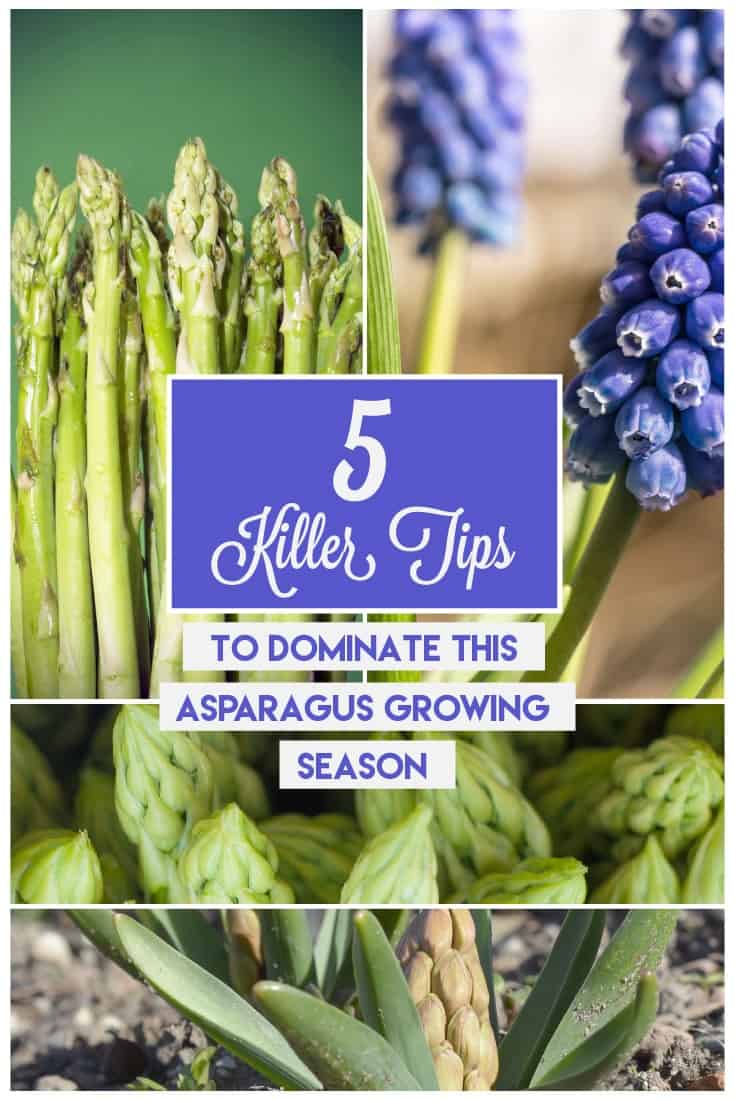The Most Effective Ways To Get Rid Of Waterbugs
There are many pests that can plague your home and garden. Technically, waterbugs aren’t the biggest nuisance out there in the grand scheme of things, but nobody really likes having them in their home.
In truth, not everyone knows what they really are – are they outdoor roaches, a type of cockroach? Technically the answer to that is no.
Semantics aside, you are likely to want to get rid of your waterbug infestation as soon as possible.
We get it – we’d want them gone too. As such we are here to help you to learn more about these creatures so that you can get them out of your home asap.
With that in mind, keep on reading to learn more about how you can get these pests far away from you.
Recognizing Waterbugs
You can’t effectively get rid of something without fully knowing what exactly that thing is. It’s simply illogical.
Because of that, it’s a good idea to familiarize yourself with what a waterbug actually is. This will help you to get rid of them much more easily since you have more information at your disposal.
So what is a waterbug? It’s one of those blanket terms that’s used to talk about a few different kinds of bugs.
These bugs generally reside near to the water or in it. This includes true water bugs, giant water bugs, backswimmers and creeping water bugs.
Sometimes though a waterbug can be used to talk about bugs that live away from the water – these bugs live completely on land. These bugs are also known as…
Cockroaches
Some cockroaches that are often referred to as waterbugs include American cockroach, oriental cockroach and the German cockroach.
Since this article is actually about real water bugs that hang around the water, that’s what we will be talking about rather than cockroaches.
Real Name: Lethocerus Americanus
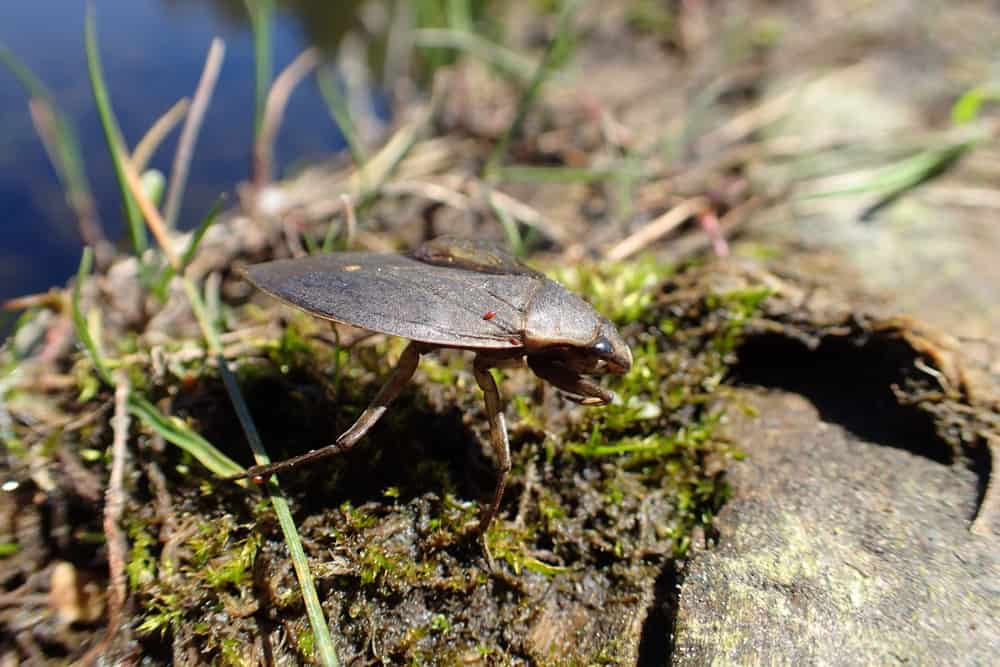
The technical name for a water bug is the lethocerus americanus – this is the name for the giant water bug at least.
They are a part of the belostomatidae family and they are insects that live in the freshwater.
They have a few different nicknames, including alligator tix, Indian toe biters, toe biters and sometimes they are called fleas.
They generally measure around 1.5 – 2 inches in length.
Appearance
Waterbugs will usually have three different parts to their anatomy that you will see – the abdomen, the thorax and the head.
They have flat bodies that are oval like in shape, and look a little like boats in some respects.
What you may be surprised to learn is that an adult water bug actually is incapable of breathing beneath the water.
As such, they usually have a breathing tube sort of thing that comes from their abdomens, and these act similarly to snorkels for humans.
They are good at hunting thanks to the shape of their bodies, with forelegs that can turn into hook shapes on the end that will allow them to hold onto any prey.
The rear legs are great for allowing them to propel themselves when they are swimming beneath the water.
These insects will usually have six legs, with two on the front used to hook onto prey.
You wouldn’t want to be the prey of these insects considering that they inject the prey with poison and their bodies liquify. The rear legs are designed for swimming.
They’ll have two eyes and antennae that are positioned just behind their eyes. They appear to be brown or gray in terms of color and are rather large – this explains the reason why they are often mistaken for cockroaches.
How They Behave
As you may have already gathered from what we have already said, these insects can be quite aggressive as predators and they eat a lot of things.
Most of the time they will eat fish, amphibians and other insects in the water. Interestingly enough, these creatures are often smaller than the things that they prey upon.
Waterbugs will usually lie in wait, totally still, until their prey comes near.
They will grasp onto the plants in the water to keep them steady, and will then strike with their powerful front legs towards the prey. It will then inject it with its poison.
The creature is quite different from many in the animal world though, since it is the male that has perhaps the largest role in ensuring that its offspring thrives.
The female waterbugs will instead hunt down their next mate to reproduce with.
Where They Live
It’s not difficult to know where a waterbug lives – it’s usually found near the water. For the most part these insects are much better suited to humid and warm climates, and prefer to stay around places that are quite damp.
They prefer to be near their natural habitat, including marshes, freshwater ponds and streams.
You are quite likely to find water bugs in Asia since they are common there, and they can also be found in locations where it is tropical and warm all throughout the world.
What’s The Difference Between A Cockroach And A Waterbug?
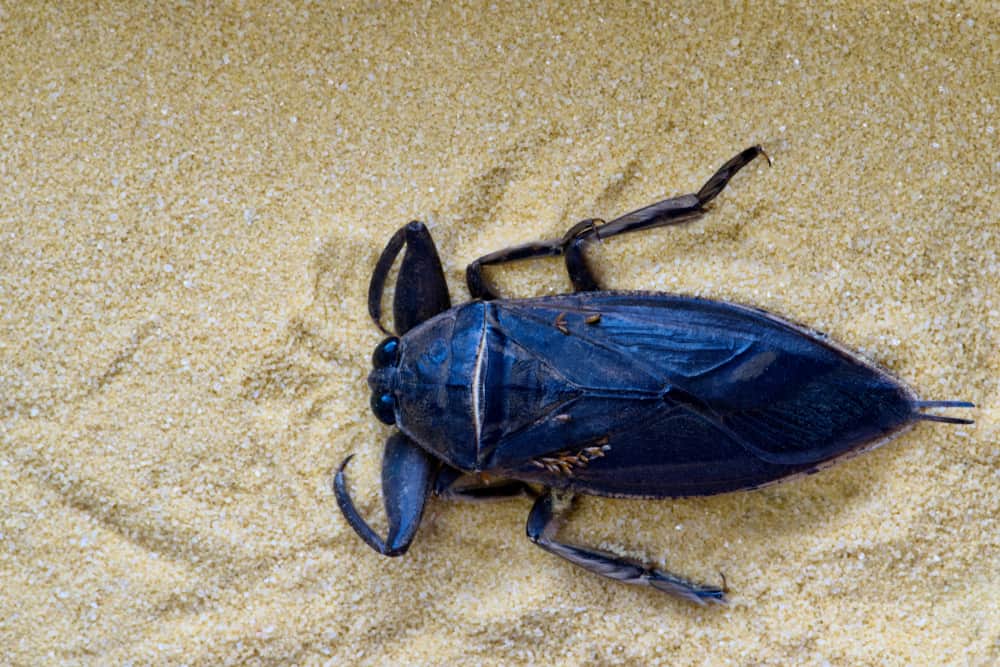
In many respects, waterbugs and cockroaches can seem rather similar, to the point that sometimes people think a water bug is a cockroach.
With that being said though, the two are certainly not the same and there are a number of differences between them both.
For starters, waterbugs tend to be a lot bigger than cockroaches are. A waterbug when fully grown will usually measure around 2 inches long, whereas cockroaches are significantly smaller at just 1 to 1.5 inches in length.
They also have different habitats. Both of these insects are capable of surviving if they are in the water, but a cockroach will usually stay on land instead.
Water bug, on the other hand, is much more likely to gravitate towards places with a warm or humid climate and for the most part they will generally stay in the water.
What about their eating habits? Well, a cockroach will eat pretty much anything.
They’ll eat things that they find when they are walking around and really aren’t specific about what they eat, whereas a waterbug will specifically hunt down prey, inject the prey with toxins and then devour it. Waterbugs definitely sound a lot more scary!
If a water bug feels like you are a threat then it will bite you – be warned!
This is not the case with cockroaches though, as they will usually just try to run away from anything that it is threatened by and it certainly isn’t likely to bite you.
Are They Pests?
For the most part, waterbugs aren’t usually considered to be pests since they aren’t usually any hindrance to people in any way.
On the other hand, a cockroach is most certainly a pest and it’s imperative to remove them immediately if you notice them in your home.
How To Know If You Have a Water Bug Infestation
The first step to getting rid of a water bug infestation is recognizing that you have one to begin with.
As with other pests, it’s always a good idea to start eliminating the problem as early as possible. It’s a good idea to know where the insects come from for this reason.
If you know the signs that you have a pest infestation in your midst then you will find it a lot easier to get rid of the insects from your home as soon as possible.
We’ve outlined some ways of getting rid of waterbugs in this very article.
In the meantime though, here are some signs that you should take note of that will help you to work out whether you have an infestation of waterbugs in your home.
- Droppings – in a lot of cases you will notice droppings alongside egg casings in your home if you have an infestation of waterbugs. You may see little abandoned shells and black pellets if you have waterbugs lurking close by.
- Humidity – water bugs are much more suited to outdoor areas, but if you don’t have the right ventilation in your home you may attract water bugs since you may have dampness in your home.
- Pipes are leaking – if your pipes are leaking in your home then it makes it more likely that you will get a waterbug infestation. This is because these insects prefer to hang out in wet locations, especially standing water. Waterbugs may be hanging out near your leaking pipes if you haven’t repaired them for a while.
Pools And Waterbugs
Many water bugs will seek out standing water to hang around in. As such, pools are the perfect breeding grounds for these insects. This doesn’t mean that you have to get rid of your pool asap, but it does mean that you need to do things to ensure that the bugs don’t stick around.
You will be likely to tell fairly easily if there are water bugs lurking in your relaxing pool, since algae may be floating on the water or on pumps nearby. Waterbugs tend to feed on algae, so if you provide them with both food and standing water, it’s pretty much paradise for them.
As such you should keep an eye out for any little eggs or algae lurking in your pool. Again, you may notice some discarded shells hanging around, alongside droppings and egg cases.You definitely need to clean your pool if you are noticing any of these signs that water bugs are near.
Treating Bites From Waterbugs
In most cases a waterbug isn’t going to cause you any major damage if you get bitten by one. With that being said though, it may burn a little in the location where you got the bite, similar to how you would feel when bitten by other insects. It’s vital that you treat it as soon as you can though.
There are some common signs to look out for to tell if you have sustained a bite, including redness, swelling and itchiness and you may feel a little bit of pain too. There are a few things that you can do from home to treat the issue.
You can put a cold compress on the bite site to make the swelling go down, and you can add cooking oil to the area. Turmeric powder mixed with water works well, as does aloe vera gel applied to the site. As you may expect, general insect bite creams are going to work well, and you can also take anti inflammatory medications.
If you are noticing that the bite is giving you severe reactions then it’s a good idea to speak to a doctor as soon as you possibly can.
Killing Waterbugs
Killing a waterbug isn’t all that difficult since there are so many ways that you can do it. With that being said, it can sometimes be more challenging to get rid of them if they are present in large groups. In most cases speaking to a pest control expert will be your best bet.
If you don’t have a very large infestation though, here are a couple of things that you can do to get rid of them.
Boric Acid
Using boric acid can be an effective way of getting rid of waterbugs from your home. It will kill the waterbugs in no time. When you buy this product you will usually find that it comes in a powder form, and you can then sprinkle this in any places where the water bugs are likely to be, or in places that you know they are situated at.
Boric acid isn’t good for waterbugs. The insects will ingest the powder and it will then get into the digestive tract, acting like a poison that will eventually kill them. You can usually buy this product online.
One thing that you can do is to make sure that you are only applying thin layers of the powder, since the insects will just avoid any particularly big piles of the powder making the effort pretty much futile.
Synthetic Pesticides
Alternatively you can use a synthetic pesticide to get the job done. These come in two main forms – powders or sprays. Inside of them are powerful chemicals that will kill insects, including the waterbugs that are plaguing your home.
Waterbug Spray
You can usually find waterbug sprays by looking on sites such as Amazon. If you have waterbugs in your home then this is one of the most common ways to get rid of them. All you need to do is spray it near to where the bugs usually stay in your home and they will swallow it and it will kill them since there will be damage to the neurotransmitters in their brains. They should die pretty soon after.
Waterbug Trap
You can also use a water bug trap or a bait in order to eliminate the waterbugs. This is especially useful if you have a lot of waterbugs in your home that you need to get rid of. The waterbug simply needs to go near the bait and then carry it back to its nest. When it does so it will get rid of the entire water bug colony because the particles in the bait are lethal for them. Just make sure that the bait is the only food that the insects have access to or this is not likely to work.
Essential Oils
Essential oils are popular for a lot of different reasons, but some of them like peppermint, lemongrass and cedarwood are very good for getting water bugs out of your house. Basically, if any of these oils can manage to get onto the insect’s skin, it can start to dry out and this will eventually kill the insects in the process.
Natural Methods
If you don’t want to use synthetic products then you can also use a natural method to get rid of them instead. Methods like using alcohol, baking soda and detergents are generally quite effective.
First is baking soda. The baking soda is designed to absorb moisture in the area. If water bugs walk over it, their bodies can be drained of water. This dehydration can kill the insects.
If you have any alcohol in your home then this can be effective, since the alcohol behaves similarly to a solvent which can dry out the outer shell of the bug. Likewise, it also dehydrates the insect which ultimately kills them. Just put some alcohol into a bottle to spray, dilute it with a little bit of water and then spray away to get rid of the insects.
Finally you can use a detergent. This is useful since the soap in the detergent will damage the skin of the insect that protects it, and this can cause them to die. Use a spray bottle and a little bit of water, mix them together and spray it to get rid of the waterbugs.
Getting Rid Of Waterbugs – The Humane Way
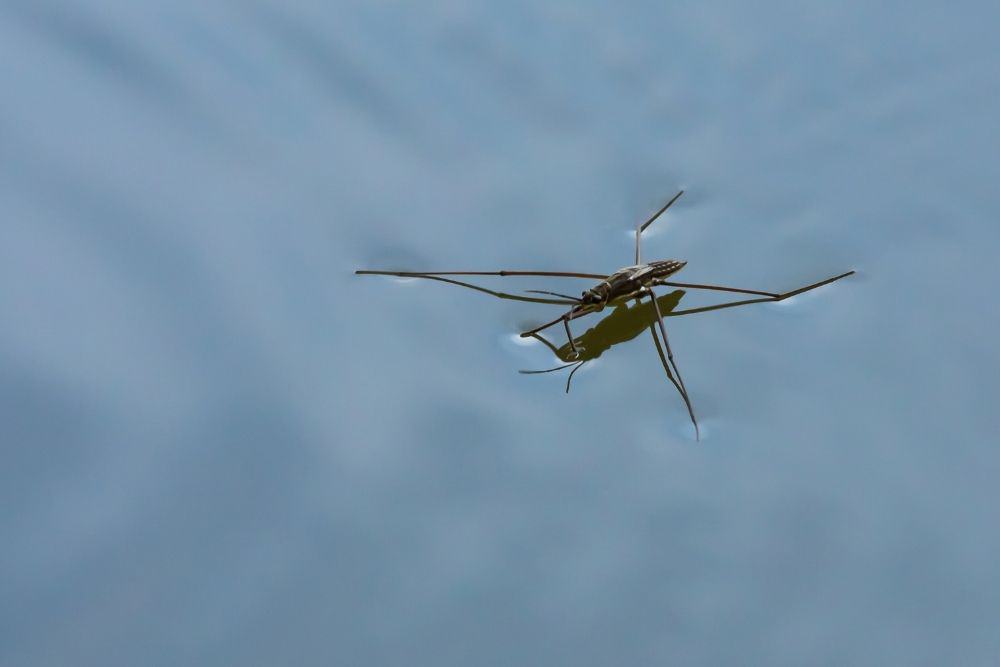
If you don’t want to kill the waterbugs, then there are ways to get rid of infestations without the need to kill them. Here are some of the methods that you can use.
Water Bug Repellent
If you can’t or don’t want to kill the waterbugs, then using a water bug repellent is the next best solution. The bug won’t be able to smell properly if you use the repellent, and this can make the area a lot less attractive for the insects. Since they no longer find their surroundings to be interesting, they are much more likely to try to leave and find somewhere else to go instead.
Natural Repellents
Alternatively, you can also use something that is easily available in your local store or even in your home – vinegar! This natural bug repellent is used worldwide for a reason – it’s very effective. All you need to do is fill up a spray bottle with some vinegar and then spray in the area of the infestation, the bugs will be gone in no time.
Stopping Water Bugs From Getting Into Your Home
The problem with waterbugs is once they have found their way to your home, it can often be difficult to completely get rid of them. For this reason, prevention is your best method of getting rid of them. Here are a few things that you can do to avoid further infestations.
Remove Standing Water
Water Bugs are drawn to standing water. As such, it makes sense that if you eliminate the standing water sources then waterbugs are less likely to come running to your home. Fix any leaks and get rid of any water that may be lurking inside of your home.
Get Better Ventilation
Humidity and moisture are appealing to waterbugs. Get rid of both and you won’t get waterbugs. Get some windows open and work on the ventilation and you can decrease your chances of getting an infestation.
Hide Food
Make sure that you don’t leave any food out in your house, since it’s likely to appeal to insects like water bugs. Make sure any containers are tightly sealed and ensure that you clean the dishes straight away when you are done with eating your food.
Cut Off Entry Points
Make sure that water bugs can’t get into your house by sealing off any cracks, crevices or holes that they can get into. They are far less likely to get into your house if you do this.



